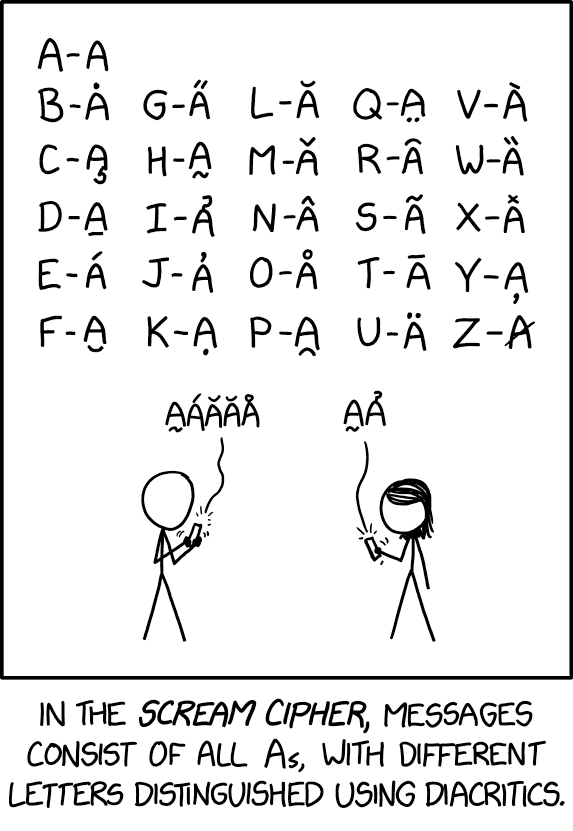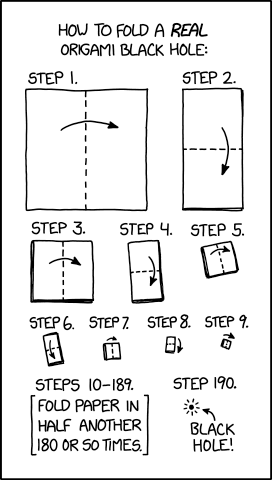Scream cipher
A recent xkcd:

Mouseover title: "AAAAAA A ÃA̧AȂA̦ ǍÅÂÃĀÁȂ AAAAAAA!"
Read the rest of this entry »
A recent xkcd:

Mouseover title: "AAAAAA A ÃA̧AȂA̦ ǍÅÂÃĀÁȂ AAAAAAA!"
Read the rest of this entry »
Yesterday's Frazz:
Caulfield's joke illustrates several interesting linguistic points.
Read the rest of this entry »
Well, approximately as much as lexicography does…
The current Dinosaur Comics:
Read the rest of this entry »

Mouseover title: "You may notice the first half of these instructions are similar to the instructions for a working nuclear fusion device. After the first few dozen steps, be sure to press down firmly and fold quickly to overcome fusion pressure."
Read the rest of this entry »
Benjamin Weissman, Jan Englelen, Lena Thamsen, & Neil Cohn, "Compositional Affordances of Emoji Sequences", 12/19/2024:
Abstract: Emoji have become ubiquitous in digital communication, and while research has explored how emoji communicate meaning, relatively little work has investigated the affordances of such meaning-making processes. We here investigate the constraints of emoji by testing participant preferences for emoji combinations, comparing linearly sequenced, “language-like” emoji strings to more “picture-like” analog representations of the same two emoji. Participants deemed the picture-like combinations more comprehensible and were faster to respond to them compared to the sequential emoji strings. This suggests that while in-line sequences of emoji are on the whole interpretable, combining them in a linear, side-by-side, word-like way may be relatively unnatural for the combinatorial affordances of the graphic modality.
Read the rest of this entry »
Todays' xkcd:

Mouseover title: "It works because a nautical mile is based on a degree of latitude, and the Earth (e) is a circle."
Read the rest of this entry »